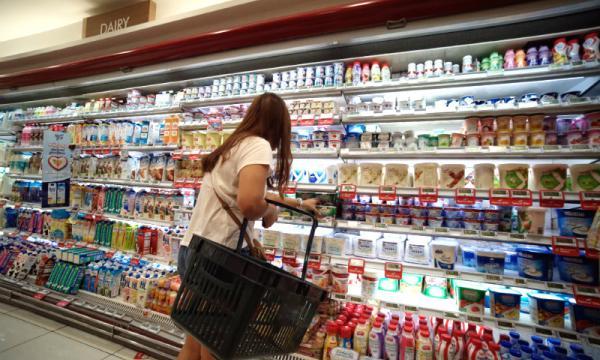
Online grocers struggle to make a mark in Singapore
Sales of the largest online grocers only comprised 0.6% of the total retail sales.
Despite the boom of online shopping in Singapore’s retail sector, Singapore’s online grocery retailers couldn’t seem to find a way to break into the supermarket sector.
CGS-CIMB, citing a Euromonitor report, reported that the online sales of Singapore’s largest grocery players, such as NTUC, DFI, and RedMart, only accounted for $206m or 11.7% of total online sales and an estimated 0.6% of total retail sales in the country. Cezzane See, CGS-CIMB analyst, thinks this is largely because Singaporeans prefer to pick groceries or fresh foods on their own.
A previous report by Maybank Kim Eng citing the same study showed that whilst online grocery sales have risen by 35% in 2017, the rate of growth has actually slowed down from 56% in 2016. The decline could be attributed to the slower growth of RedMart's sales from 95% in 2016 to 50% in 2017.
Roger E. Egan III, RedMart co-founder and CEO, responded through an interview with Singapore Business Review, “The penetration rate of online grocery shopping in Singapore is growing. Whilst we cannot comment on the accuracy of the report, what we can say is that RedMart had a very healthy revenue growth in 2017 and we are convinced of the long-term viability of our business model.”
Singapore continues to be dominated by supermarket heavyweights like NTUC, DFI, and Sheng Siong, which ate up 65.4% of the market in 2017. CGS-CIMB attributes the traditional grocery titans’ dominance not only to consumer behaviour but also to scale, formats that cater to every income segment of Singapore’s population, and their deep pockets that enable them to respond swiftly to changes in consumer habits. Still, all three players have already set up online platforms.
However, according to IGD Asia’s programme director Shirley Zhu, this doesn’t mean there isn’t an opportunity for online grocery.
“The grocers in Singapore are stepping up their effort online by investing more in products, people and supply chain. As they provide a wider assortment online, better delivery and service, we believe online grocery shopping will keep growing. Singapore is on a journey, similar to what we have seen in the UK and in China. Shoppers will build confidence on online shopping through their experience purchasing non-food items, and they’ll add food and eventually fresh products in their baskets,” she said.
Egan said that RedMart “understands local preferences and tastes.” He added, “One of our fastest growth areas is our fresh range. We started in mid-2014 with a few dozen fresh fruit and vegetable items. In just over three and a half years, our range has expanded to many hundreds of items; ranging from everyday value produce to premium seasonal speciality lines; from locally-grown farms in Singapore to fresh from Australia imports.”
Aside from having a mobile and web application and a delivery service, the online grocer implements competitive pricing through its Price Match Guarantee and additional savings through promotions and a lifestyle membership programme called LiveUP with its partners.
Another emerging online grocer, honestbee, is looking to tap a very specific segment of Singapore consumers. Chris Urban, honestbee Singapore managing director, said, “Singapore has been favourable, and moving forward in the next 5 years, with the increase in urbanisation, high population density and booming smartphone usage which leads to increased mobile commerce opportunities – we see the huge potential in markets such as Singapore, who is evolving and ever-changing."
He added, "Tapping on honestbee's technological expertise, we continue to explore new innovations to grow through the times and remain relevant to the needs of the emerging household (i.e.: millennials starting a new family) in Singapore."
In the meantime, CGS-CIMB does not think disruption will come to Singapore’s supermarket scene as soon as some have expected. Whilst the study does not have projections for individual internet players, food and drink category (which comprises mostly packaged goods and alcoholic drinks) represented the bulk of grocery spending.
Food and drink category retail sales estimate could reach $177.8m, accounting only for 0.53% of Singapore’s total retail sales value. “This implies that the grocery space could face the least near-term disruption from e-commerce, in our view,” See concluded.
























 Advertise
Advertise









